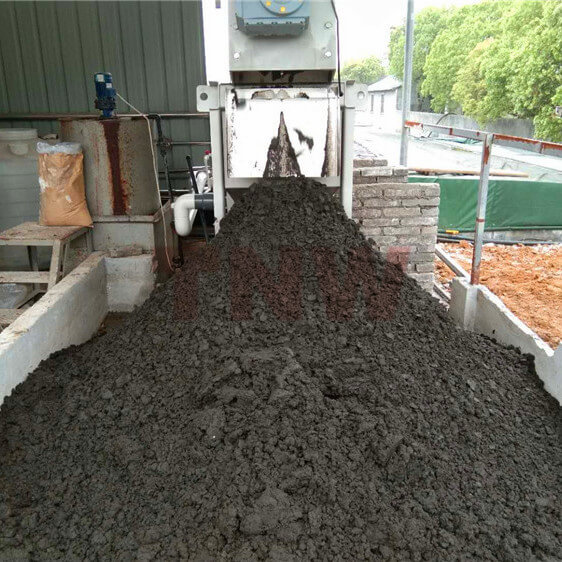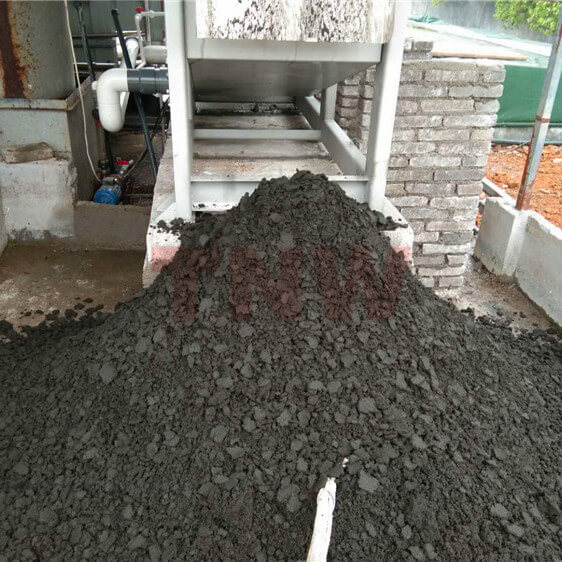Product news
Application case of sludge dewatering machine for treating pig farm wastewater
The meaning of pig farm wastewater:
The wastewater of pig farms mainly refers to the mixture of excrement produced by breeding and wastewater from cleaning farms. It is estimated that the daily excretion of a pig is about 6kg, and the annual excretion will reach 2.5t. Calculated according to the daily excretion of a thousand pig farms, the annual excretion is 2500t. Coupled with the waste water from cleaning, the amount of waste water from pig farms is multiplied.
Hazards of pig farm wastewater:
The discharge of manure from farms has caused serious pollution of surface water, groundwater, soil and ambient air, which directly affects people's health. The untreated manure contains a lot of pollutants. Or washed into rivers, lakes and reservoirs with rainwater, consuming a large amount of dissolved oxygen in the water body, making the water body black and smelly, causing water pollution.
Manure sewage contains a large amount of nutrients such as nitrogen and phosphorus, which is one of the important reasons for eutrophication of water bodies. Discharge into fish ponds and rivers will gradually kill aquatic organisms sensitive to organic pollution, and in severe cases, fish ponds and rivers will lose their use. Function.
The long-term infiltration of aquaculture sewage into the ground increases the concentration of nitrate nitrogen or nitrite nitrogen in the groundwater, reduces the dissolved oxygen content in the groundwater, and increases the toxic components, which leads to the deterioration of water quality and seriously endangers the quality of surrounding domestic water.
High-concentration sewage can also lead to blockage of soil pores, resulting in decreased soil air permeability and water permeability, as well as hardening and salinization, seriously reducing soil quality, and even harming crops, causing crop growth obstruction or death.
Pig farm wastewater characteristics:
1) High organic pollutant load,The content of suspended solids, organic matter and ammonia nitrogen in pig-raising wastewater is high, and the solid and liquid are mixed, resulting in a high pollution load. Among them, the five-day biochemical oxygen demand BOD5 is between 600-7000mg/L, and the chemical oxygen demand COD concentration can reach 13000-17000mg/L;
2) In the pig breeding wastewater treatment project, the wastewater discharge time is relatively concentrated, and the impact load is large;
3) In the pig-raising wastewater treatment project, the wastewater is mixed with solid and liquid, the concentration of organic suspended solids is high, and the viscosity is large;
4) Good biodegradability and high BOD/COD ratio;
Which part of the sludge dewatering machine is used in the treatment of pig wastewater:
The first situation is that the wastewater from pig farms has not been treated by biochemical processes. The inorganic sludge from the solid-liquid separator or air flotation machine directly enters the sludge dewatering machine. The moisture content of the sludge is 80%-85%, and the filtrate is slightly yellow, which can reach the third-level discharge standard. Most of the filtrate can be irrigated. Emissions form a whole biological chain.
The second situation is that the wastewater from pig farms has been treated by biochemical processes. The sludge dewatering machine treats the organic sludge in the secondary sedimentation tank, the moisture content of the sludge is 80%-85%, and the filtrate is close to the state of clear water, which can reach the first-level discharge standard, and can be directly discharged to lakes and rivers.
The attached picture shows the case of sludge dewatering machine to treat swine wastewater:


Note: You can write to us or leave a message at any time to get technical support or solutions.
Email: info@tnwcn.com
Feedback: Click here